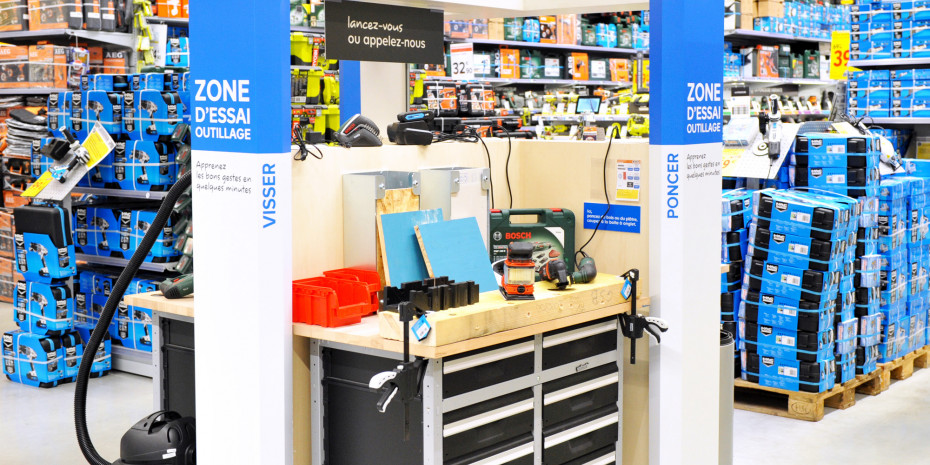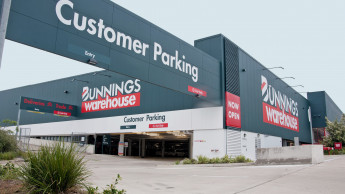
deep insights, facts & figures

Castorama invites its customers to try things out.
Customer behaviour is changing. Drills and saws are being bought increasingly online. But that isn't the only change that could take place in the DIY store business
A recent study conducted on behalf of Fediyma (European Federation of DIY Manufacturers) by the consultancy firm Gruppe Nymphenburg in Munich, a German member of the Ebeltoft Group International Retail Experts alliance and its partners, shows the growing importance of the online channel in the European DIY sector.Before buying products for renovation projects or premium power tools, over 58 per cent of all customers find out more about the preferred product on online platforms. Around 34 per cent have already bought DIY products online. The challenge for DIY retailers is, that many customers that buy online in the end (88 to 90 per cent) buy in online marketplaces like Amazon/eBay and not at the webshops of the established DIY retailers.This behaviour is being driven by several megatrends, which will influence the whole retailing landscape. Digitalisation, simplicity, energy transition and an aging population will be aspects that cause far-reaching changes in the future of DIY retailing. But there are other sociographic facts that retailers will have to address in the coming years: young people living longer in the parental home, most households being single households and increasing urbanisation. The first consequences of these developments can be seen in the closure of DIY stores and the increasing use of concessions in big box spaces (e.g. integrating the online cycle retailer Wiggle with its first physical retail presence into a Homebase store in St. Albans in the UK).For these reasons, retailing will surely change in the future. The Ebeltoft Group has sketched six possible scenarios of what DIY retailing could be like in 2030.
The focus of the stores lies in "trying new things", "experiencing new tools and products" and "doing it on your own". Retail spaces will be run by both retailers and manufacturers. Virtual rooms for the visualisation of design options are available and the whole store is full of shop-in-shops of several brands. Different workshops are offered for explaining new tools and technologies to the customers and there are spaces customers can rent if they have to build or work on something but do not have the space or the right equipment at home.Examples from other sectors of such a development are premium department stores, Globetrotter (outdoor equipment) or Eataly (food retailer). Recent examples of this direction in DIY are the Knauber innovation store in Pulheim, Germany, and…
Related articles
Read also








